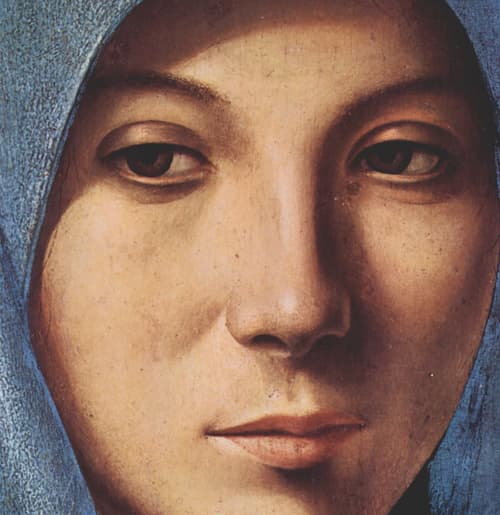God's Liar, Thom Satterlee. Slant Books 2019.
The Rev. Theodore Wesson has an impeccable memory. This has served him well during his life of ministry: never once has he forgotten the words to Morning Prayer. That is, until he is visited by John Toland, biographer of the late John Milton. After stumbling through the liturgy, in the biographer’s presence, the elderly widows of the parish approach their parson to console him: ‘It is nothing to be ashamed of […] I forget things too. All the time!’
The Rev. Wesson has an impeccable memory: except when he chooses to forget. And in the presence of Toland, he chooses to forget much. His apparent confusion in chapel is but a ruse intended to throw the biographer off course. While he is happy to admit in a letter to Toland ‘Yes, it is true: I knew John Milton’, he is reluctant to reveal any further details of his acquaintance with the epic poet. Wesson’s reticence is met, however, with Toland’s persistence. Before the aforementioned letter has passed into the hands of the curate charged with its delivery, the biographer appears unannounced at the parsonage, ready to tease open doors the cleric would rather hold closed. What ensues is an intricately woven dialogue of revelation and omission.
Through diary entries, the reader is cast back over thirty years, to July 1665. London is ravaged by the bubonic plague, and the young curate Wesson is embarking on his career in the Church of England. Upon encountering Milton and his wife, Elizabeth, Wesson is blissfully ignorant of the dark shadow which covers their name. He befriends the couple almost instantly, relishing Mrs Milton’s warm hospitality and her husband’s cutting, though affectionate, wit. He regularly pays them visit, reciting Virgil off by heart to the blind poet. As they draw closer, however, tensions begin to arise. Mr and Mrs Milton are conspicuously absent from Sunday Holy Communion and, when Wesson invites them to a service, the parson denies them the Sacrament. Slowly but surely, the young curate learns of accusations levied against the author; accusations of adultery, rebellion, and high treason.
By getting caught up with the pair, Wesson risks everything. He is well-respected in the village and holds promising career prospects. Yet, as his friendship with the Miltons deepens, all his plans are thrown into question. The likelihood of gaining a promotion to a London parish of his own narrows; more crucially, his own faith in God is shaken. The strength of Satterlee’s narrative lies in his exposition of this deep, interior conflict. Torn between paths, Wesson asks the age-old question: Who are you, O Lord, and who am I?
When Wesson asks questions of himself and his life, he seeks to encounter a truth which had heretofore been obscure to him. While always a successful student and candidate, excelling far beyond his Oxford peers, as a young man Wesson has yet to experience the presence of God in his life. He desires desperately to know God truly, yet cannot comprehend His silence, most especially His silence in the face of suffering. Grappling with theodicy in the midst of the plague, Wesson asks: ‘for what can prayer profit if He be a God of such indiscriminate death & accidental pardon?’ In seeking an answer, he is led to the very edge of his faith, almost risking his life to encounter the Truth. It is Milton, the apparent dissident, who guides the curate, who offers him a communion of souls. His friendship with the poet serves as a sounding board for his exploration of doubt; and it is only with Milton that Wesson is able to truly speak. The poet becomes a trusted interlocutor with whom the young curate can give voice to his deepest uncertainties, fears, and desires. To the rest of the world, Wesson continues to carefully project an image of composed devotion: at least, insofar as he is able.
God’s Liar continually explores the subtle distinction between fact and fable. As the protagonist strives to pursue the truth of who God is, he becomes increasingly tangled in stories – the stories he tells others, and those he tells himself. Even as an aged parson, Wesson is cautious to craft and control his own narrative. Having penned his journal, his personal ‘story of a soul’, he shares it in part with Toland. His revelations seem to satisfy the biographer, whose priority is to gain insight into the poet’s influence during Restoration years: it is only the reader who is privy to the whole truth. Thirty years after the fact, Wesson chooses to ‘judiciously withhold’ certain entries from Toland, stories which reveal not only his spiritual struggle, but the depth of his friendship with Milton. He will, it seems, carry this secret to the grave.
Satterlee’s work is not simply, then, an exposé of the life of John Milton – though it does offer a fresh perspective on the writer’s years in Chalfont St Giles– but an engaging and perspicacious reflection on the pursuit and understanding of truth. This short work is brimming with insight into the life of faith, as an obscure and meandering path towards a God who is often silent. In journeying through Wesson’s memories, at once lucidly recalled and shrewdly obscured, the reader is encouraged to examine their own life – the stories they may tell and the truths they may, at times, occlude. Who are you, O Lord, we ask. And who am I?
Rebecca Short is a DPhil Candidate in French Literature at St Hilda’s College, Oxford where she studies self-fashioning and interiority in eighteenth-century apologetics.
